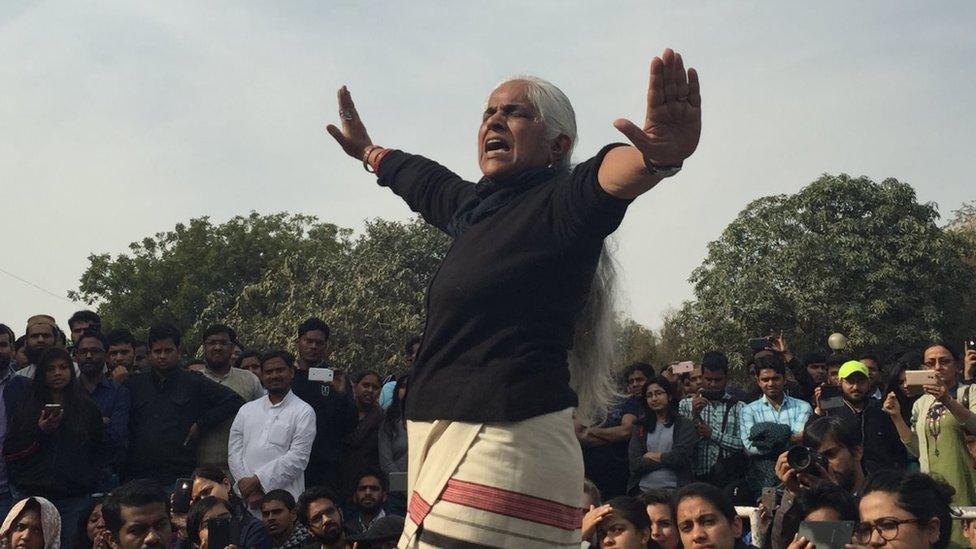Two India 'sedition' students surrender to police
- Published
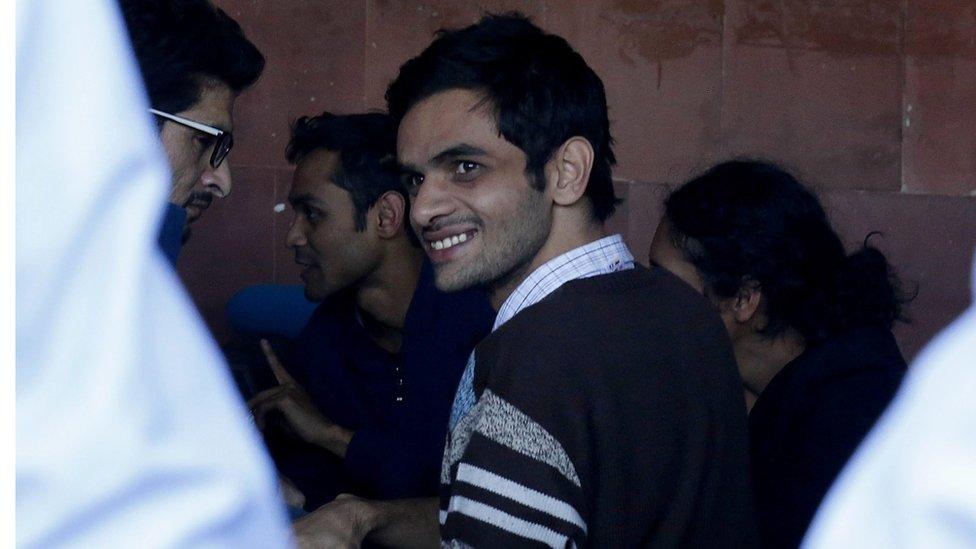
Umar Khalid was one of the organisers of the protest on 9 February
Two Indian students accused of sedition for helping organise a protest at Delhi's prestigious Jawaharlal Nehru University (JNU), have handed themselves into police.
Umar Khalid and Anirban Bhattacharya were among several wanted by police.
The arrest of JNU student union head Kanhaiya Kumar earlier this month led to protests and clashes across India.
The 9 February protest over the 2013 hanging of a Kashmiri man allegedly saw the chanting of anti-India slogans.
After Mr Kumar was arrested the other students named in connection with the protests went missing but they resurfaced at JNU on Sunday night.
Police did not enter the campus but late on Tuesday night Umar Khalid and Anirban Bhattacharya left university premises of their own accord and handed themselves over. Police cannot enter without permission from university authorities, reports say.
Police have now demanded that the remaining students - Ashutosh Kumar, Anant Prakash Narayan, Riyazul Haq and Rama Naga - surrender.
Critics have condemned the charges as an assault on freedom of expression, but government ministers have refused to back down, vowing to punish what they describe as "anti-national elements".
In the wake of the demonstration, some local media accused Umar Khalid of having links with the Pakistan-based Islamist militant group Jaish-e-Mohammad, although the government later denied the reports.
"I'm not a terrorist," Mr Khalid told a gathering. "I have never projected myself as a Muslim while doing politics on campus. I always tried to see exploitation of Muslims along with the exploitation faced by Dalits, tribals and others."
The protest was over the execution of Afzal Guru who was convicted of a 2001 plot to attack India's parliament, charges he always denied. The attack, in which 14 people died, was carried out by Kashmiri militants.
His 2013 hanging sparked protests in Kashmir, and he was seen as a martyr and a symbol of perceived injustice. But many of India's politicians were angered when reports surfaced of anti- India slogans chanted at the protest held to mark his execution.
- Published22 February 2016
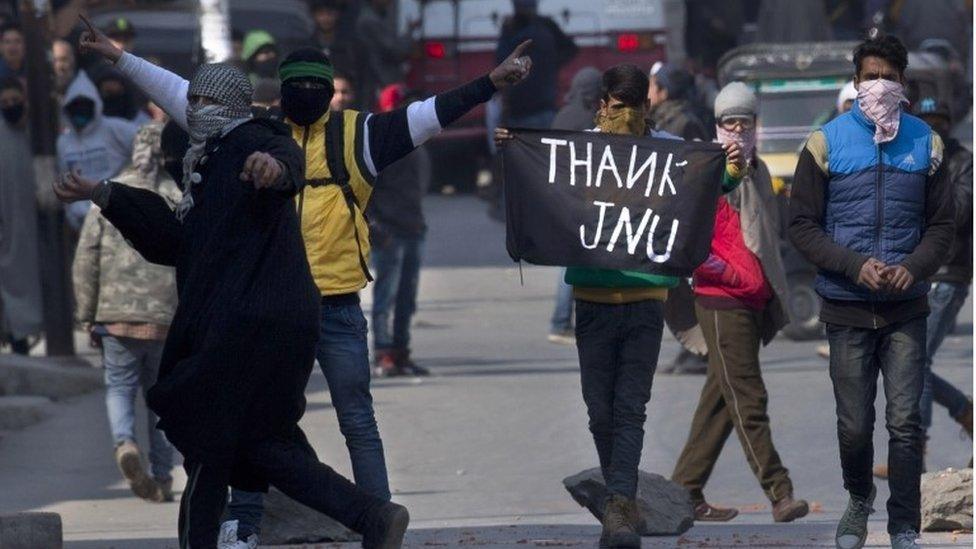
- Published15 February 2016
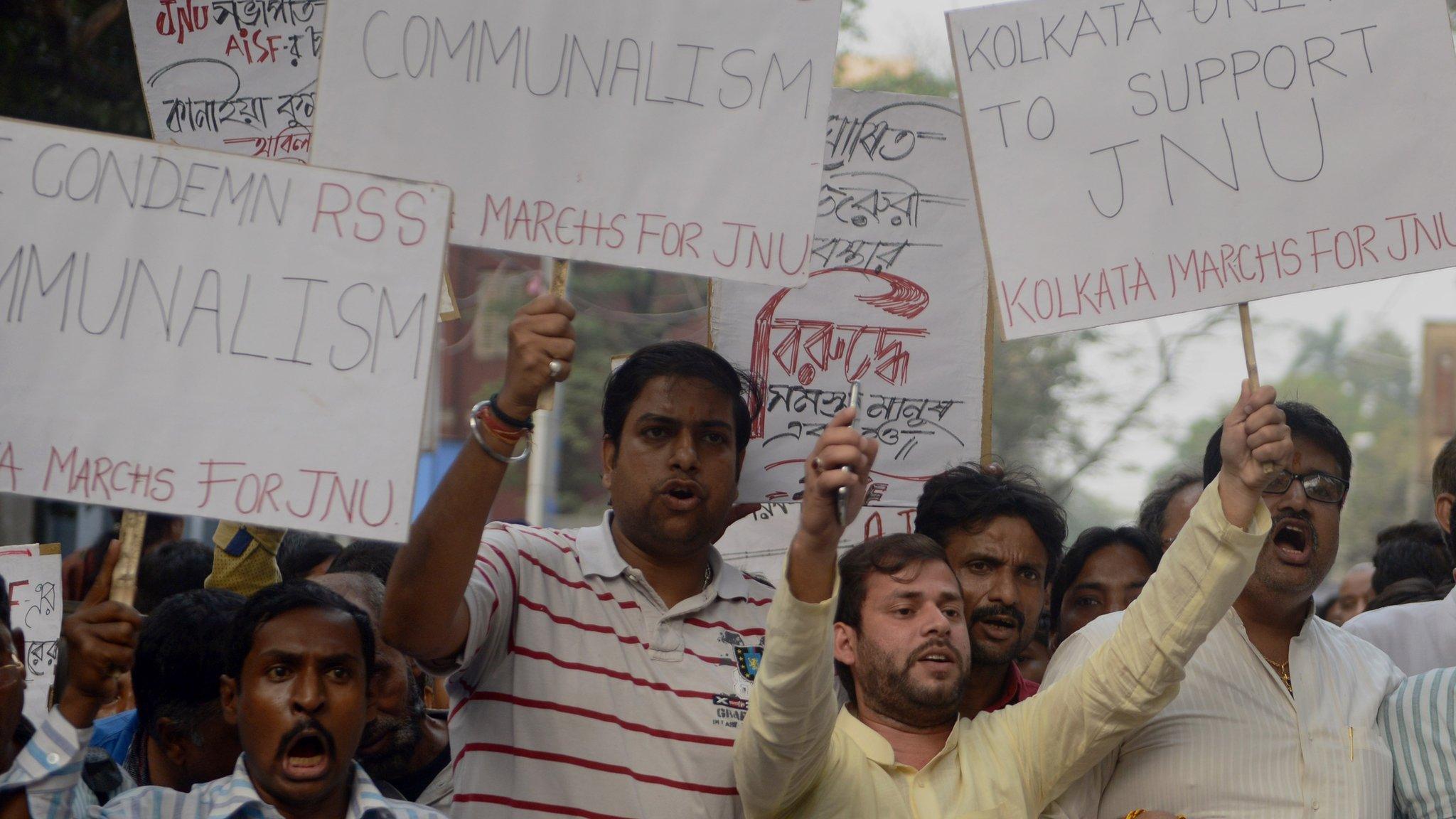
- Published18 February 2016
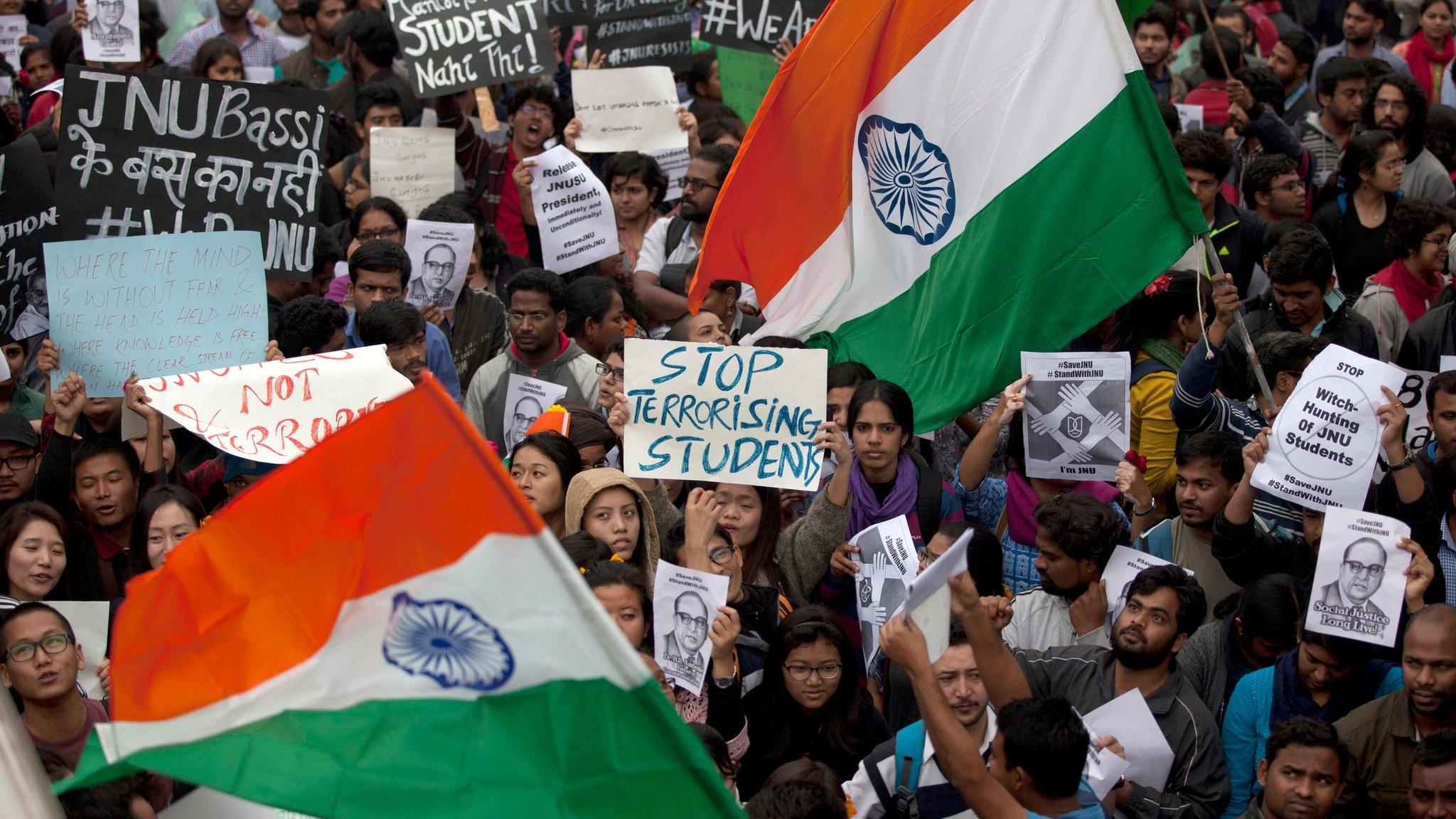
- Published17 February 2016
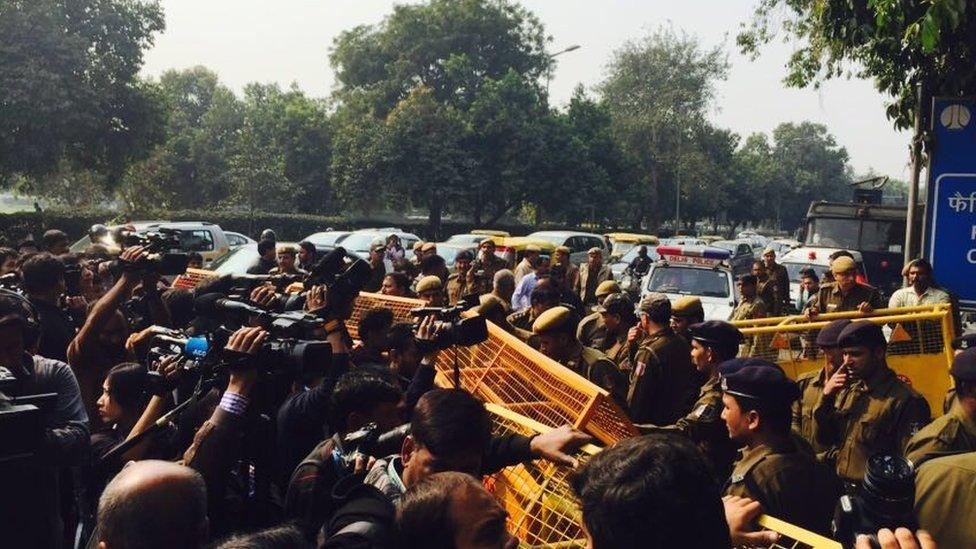
- Published16 February 2016
